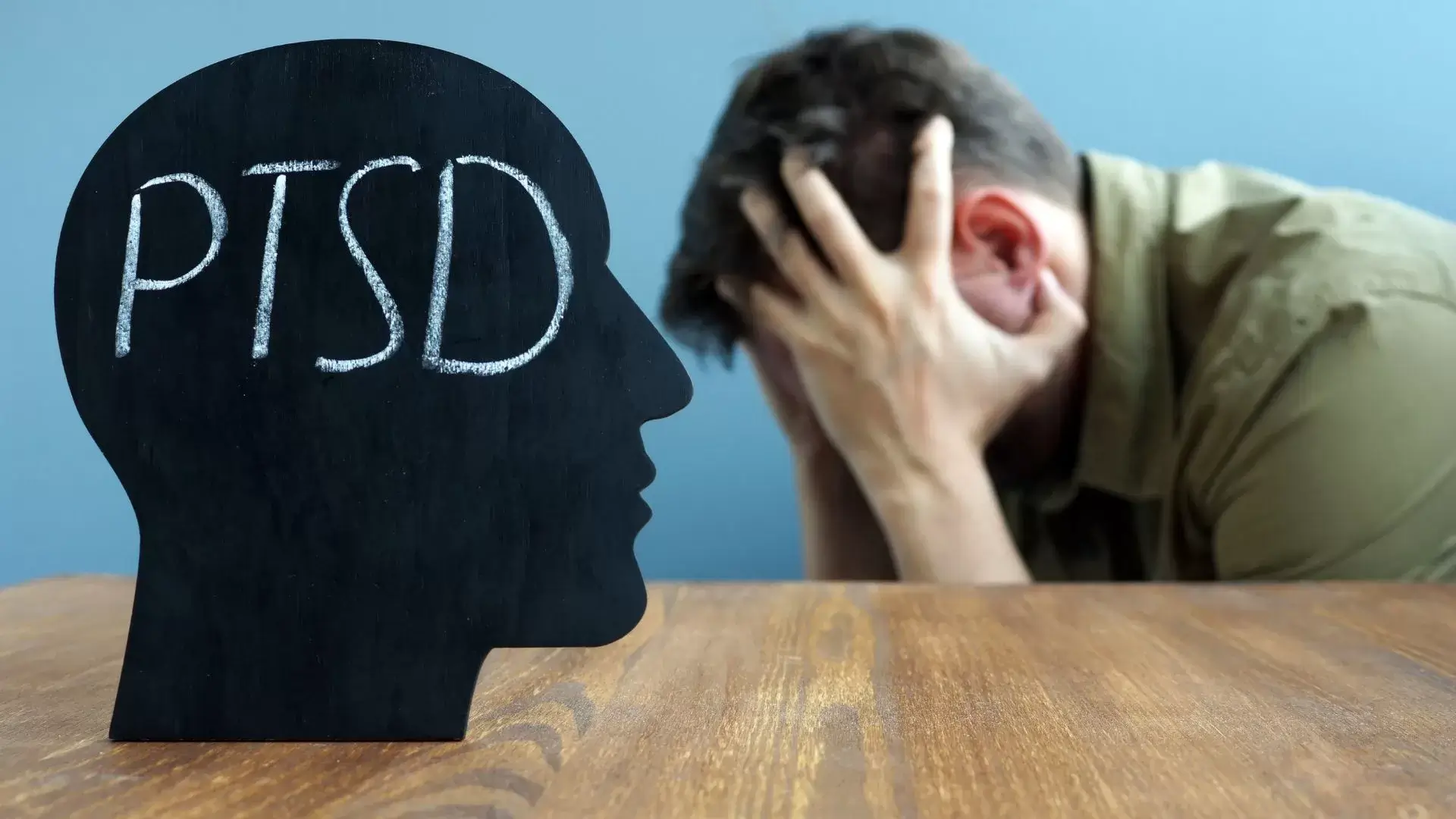We often overlook the profound effects that emotional abuse can have on an individual’s mental health, yet it’s essential to recognize its potential to lead to PTSD, particularly Complex PTSD. This form of trauma doesn’t stem from a single event but rather from a pattern of manipulation and emotional harm. As we explore the nuances of this relationship, we might find ourselves questioning how deeply emotional scars can impact our lives. What does this mean for those affected, and how can we begin to understand the path toward healing?
About Oakville Psychotherapist
Often, we find that seeking help from an Oakville psychotherapist can be an vital step in overcoming the effects of emotional abuse and PTSD. These professionals provide a safe space for us to explore our feelings and experiences, guiding us toward healing. Located conveniently at 243 North Service Rd W #106F, Oakville, ON L6M 3E5, they’re easily accessible for those of us who need support.
The therapists in Oakville understand the complexities of emotional trauma and its impact on our mental health. They use evidence-based techniques to help us process our experiences and develop coping strategies. By reaching out to an Oakville psychotherapist, we can gain valuable insights into our behaviors and thought patterns, fostering personal growth and resilience.
If we’re ready to take that important step, we can contact them at (647) 360-5880. Taking the initiative to seek therapy signifies strength, and it’s a vital part of our journey toward recovery. With professional guidance, we can reclaim our lives and move forward with renewed hope. Together, we can navigate the road to healing and find a brighter future.
Understanding Emotional Abuse and Complex PTSD (C-PTSD)
Emotional abuse can leave deep scars that contribute to the development of Complex PTSD (C-PTSD), affecting our daily lives and relationships. We often underestimate the impact of emotional abuse, thinking it’s less severe than physical abuse. However, the effects can be equally debilitating. This type of abuse involves manipulation, control, and consistent emotional harm, undermining our self-worth and sense of security.
When we experience prolonged emotional abuse, our minds struggle to process the trauma, leading to C-PTSD. Unlike traditional PTSD, which usually stems from a single traumatic event, C-PTSD arises from repetitive trauma over time. This can make it harder for us to recognize the source of our distress.
We may find ourselves caught in cycles of fear, anxiety, and emotional dysregulation. Trust issues may develop, making it difficult to form healthy relationships. We might also feel a pervasive sense of hopelessness, as if we’re forever trapped in the shadows of our past. Understanding how emotional abuse shapes C-PTSD is essential for our healing journey, allowing us to seek the support we need to reclaim our lives and rebuild our sense of self.

Recognizing the Symptoms of PTSD Resulting From Emotional Abuse
Recognizing the symptoms of PTSD resulting from emotional abuse is essential for understanding our experiences and seeking the appropriate help. We might find ourselves reliving past events through intrusive memories or flashbacks. These episodes can feel overwhelming and often trigger intense emotional responses.
We may also notice heightened anxiety, irritability, or mood swings that interfere with our daily lives. It’s common for us to experience difficulty concentrating or staying focused, which can affect our work or relationships. Additionally, we might withdraw from social situations, feeling disconnected or numb, as if we’re observing life from a distance.
Sleep disturbances, like insomnia or nightmares, can further complicate our emotional landscape. We might experience physical symptoms, too, such as headaches or stomach issues, as our bodies react to the psychological distress.
If we find ourselves engaging in self-destructive behaviors, it’s a sign that we need to address our pain. Recognizing these symptoms is the first step in our journey toward healing. By acknowledging what we’re experiencing, we can take proactive steps to seek support and reclaim our lives from the shadows of emotional abuse.

Exploring the Effects of PTSD and Emotional Abuse on Mental Health
The impact of PTSD and emotional abuse on our mental health can be profound, shaping not just our thoughts but also our entire sense of self. We often find ourselves trapped in a cycle of fear and anxiety, struggling to trust others or even ourselves. The emotional scars left by past trauma can lead to feelings of worthlessness, confusion, and isolation.
When we experience emotional abuse, it can distort our self-image, making us doubt our capabilities and value. This self-doubt can spiral into PTSD, where our minds replay traumatic events, keeping us in a constant state of alertness. We might notice heightened sensitivity to stressors, which can trigger flashbacks or panic attacks, further complicating our daily lives.
Moreover, these experiences can manifest in physical symptoms, such as fatigue or chronic pain, adding another layer to our mental struggle. As we navigate through these challenges, it is crucial to recognize that healing is possible. By acknowledging the effects of PTSD and emotional abuse, we can begin to seek support, reclaim our identities, and foster healthier relationships with ourselves and others. We’re not alone in this journey, and together, we can work toward recovery.

The Impact of Emotional Abuse and PTSD on Mental Health
Our mental health often suffers silently under the weight of emotional abuse and PTSD, leaving us grappling with persistent feelings of anxiety and self-doubt. We may find ourselves trapped in a cycle of negative thoughts, questioning our worth and capabilities. This emotional turmoil can lead to a distorted self-image, making it difficult for us to trust ourselves and others.
Many of us experience mood swings and heightened irritability, which can strain our r elationships. We might withdraw from friends and family, fearing that they won’t understand our pain. As we navigate daily life, we often feel overwhelmed by triggers that remind us of past traumas, leading to flashbacks and heightened emotional responses.
Our ability to concentrate may decline, making it hard to focus on work or personal projects. Sleep disturbances often plague us, as racing thoughts and anxiety keep us awake at night. The cumulative effects of emotional abuse and PTSD can create a ripple effect in our lives, affecting our overall well-being. It’s essential for us to seek support, whether through therapy, support groups, or trusted friends, to begin healing and reclaiming our mental health.
How PTSD and Emotional Abuse Affect Physical Health
Emotional abuse and PTSD can manifest in various physical health issues, often leaving us feeling fatigued and unwell long after the emotional scars have begun to heal. We may experience chronic pain, headaches, or gastrointestinal problems as our bodies react to the stress and trauma we’ve endured. This connection between our mind and body emphasizes how deeply intertwined our emotional experiences are with our physical health.
When we constantly relive traumatic memories or endure the aftermath of emotional abuse, our bodies stay on high alert. This can lead to inflammation, weakened immune response, and increased risk for conditions like heart disease and obesity. We might find ourselves struggling with sleep disturbances, leading to further fatigue and a cycle of poor health.
Moreover, our coping mechanisms can also contribute to physical decline. We may turn to unhealthy habits like overeating, substance abuse, or neglecting exercise, all of which exacerbate our physical issues. Acknowledging this connection is essential. By addressing both our emotional and physical health, we can begin to heal holistically, paving the way for a healthier future.
Interpersonal Relationships: The Effects of Emotional Abuse and PTSD
Experiencing emotional abuse and PTSD can severely impact our interpersonal relationships, making it difficult to trust others and form healthy connections. We might find ourselves constantly questioning the intentions of those around us. This distrust can lead to isolation, as we withdraw from friends and family, fearing further emotional harm.
In our relationships, we may struggle with communication. Emotional abuse can leave us feeling inadequate, so we might avoid expressing our needs and feelings. This silence only amplifies our feelings of loneliness and disconnection. When conflicts arise, we may overreact or shut down entirely, unable to cope with the emotional turmoil.
Moreover, we could develop a heightened sensitivity to perceived criticism or rejection. This hyper-vigilance can strain our interactions, making it challenging to maintain healthy boundaries. As we navigate these interpersonal dynamics, we may also grapple with feelings of guilt or shame, believing we’re somehow responsible for the dysfunction in our relationships.
Ultimately, the lasting effects of emotional abuse and PTSD can create a cycle of pain and misunderstanding in our connections, leaving us yearning for the closeness we once had but now find so elusive.
The Impact of PTSD and Emotional Abuse on Future Relationships
PTSD and emotional abuse can cast long shadows over future relationships, often making it hard for us to fully engage and trust new partners. We might find ourselves second-guessing their intentions, fearing that the patterns of past abuse will repeat. This anxiety can lead to a cycle of avoidance, where we hold back emotionally or pull away altogether, ultimately sabotaging potential connections.
When we do let someone in, our heightened sensitivity to perceived threats may cause us to react defensively. We might misinterpret innocent remarks or gestures as signs of betrayal, leaving our partners confused and hurt. These misunderstandings can create a rift, making it challenging for us to build healthy dynamics.
Moreover, our emotional landscape may become so tumultuous that we struggle to communicate effectively. Our partners may feel isolated, not knowing how to support us or navigate our emotional ups and downs. This disconnect can foster resentment and frustration, further complicating our ability to form lasting bonds.
In essence, the legacies of PTSD and emotional abuse can hinder our journey toward fulfilling relationships, requiring us to confront these challenges head-on to move forward.
Healing From PTSD and Emotional Abuse: A Comprehensive Guide
Healing from the effects of emotional abuse and PTSD requires a multifaceted approach that combines self-awareness, professional support, and community connection. We need to start by acknowledging our feelings and experiences, which helps in understanding the depth of our trauma. Keeping a journal can be an effective way to process our emotions and track our healing journey.
Next, we should seek out supportive communities, whether online or in-person, where we can share our experiences without fear of judgment. Connecting with others who’ve faced similar challenges can provide a sense of belonging and validation.
Mindfulness practices, such as meditation and deep-breathing exercises, can help ground us during moments of anxiety. It is crucial to create a daily routine that incorporates these practices, as consistency is key in our healing process.
Additionally, engaging in creative outlets, like art or music, allows us to express emotions that might be difficult to verbalize. As we navigate this journey, we must remember that healing isn’t linear; it’s okay to have setbacks. Together, we can build resilience and reclaim our lives from the shadows of emotional abuse and PTSD.
Seek Help from Our Registered Psychotherapists
Finding the right support is essential in our journey, and seeking help from registered psychotherapists can provide us with the guidance and tools we need to navigate the complexities of emotional abuse and PTSD. These professionals are trained to understand the nuances of our experiences and can help us process our feelings in a safe environment.
When we reach out to a registered psychotherapist, we open ourselves up to healing. They can assist us in identifying the patterns of our emotional abuse and how they contribute to our PTSD symptoms. Through tailored therapeutic approaches, we can learn effective coping strategies, explore our emotions, and rebuild our self-esteem.
It’s important to remember that asking for help is a sign of strength. We’re not alone in this journey; many have walked a similar path and found healing. By engaging in therapy, we can create a personalized action plan that supports our recovery and fosters resilience.
Let’s prioritize our mental health and take that brave step toward healing. Consulting with a registered psychotherapist can be a transformative experience, guiding us toward a brighter, healthier future.



